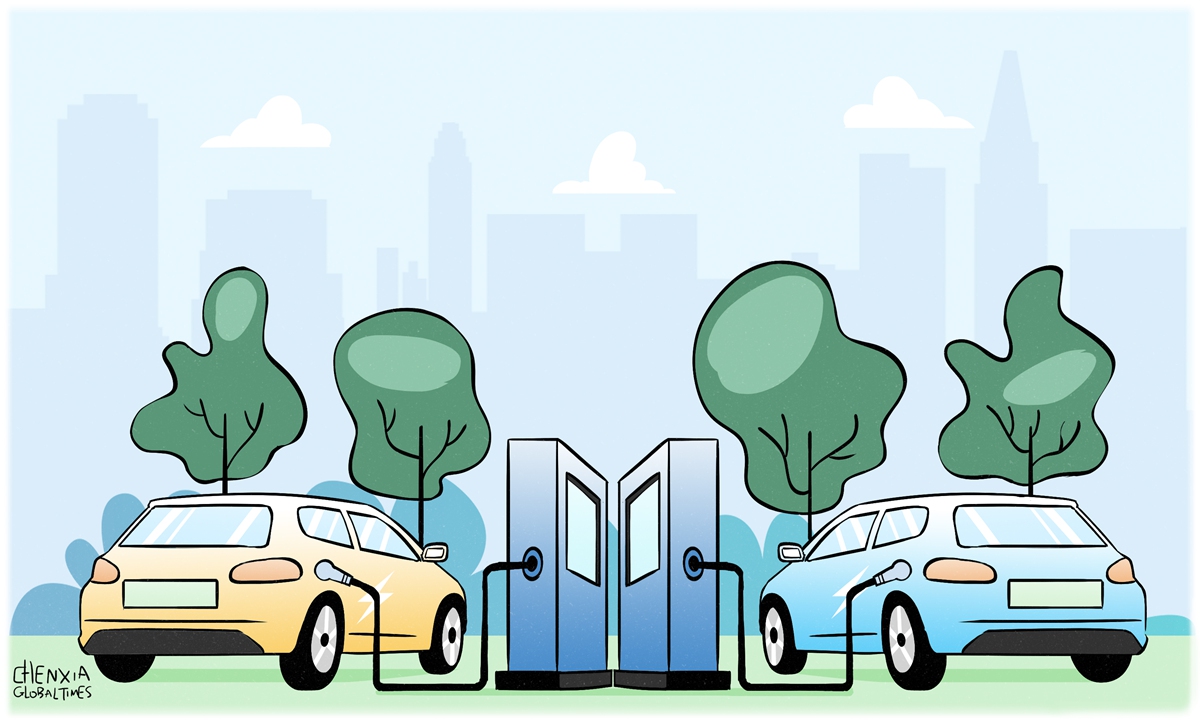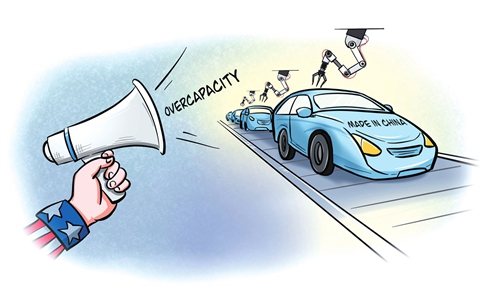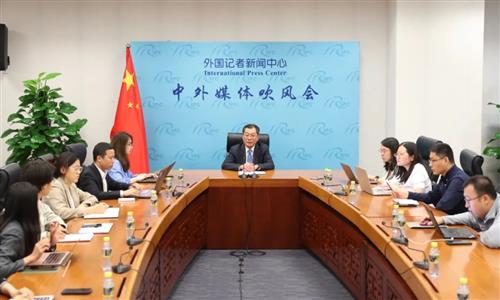
Illustration: Chen Xia/GT
In response to the recent "overcapacity" hype by some US government officials, Li Daokui, director of Tsinghua University's Academic Center for Chinese Economic Practice and Thinking, told Chinese media on Friday that the debate about manufacturing capacity to a large extent relates to globalization.
China's new-energy manufacturing capacity is actually developed in a globalized environment, Li said, noting that China aims to further advance globalization by exploring markets for its new-energy products and importing advanced equipment and raw materials to form a bigger new-energy cycle. However, the US and some Western countries don't want to participate in this globalized cycle, fearing shipments of Chinese cars may affect their own markets.
The coming decade, according to scientists, is considered a critical period for reining in carbon dioxide emissions and taming climate change. Relying solely on political rhetoric cannot help the world meet ambitious emissions reduction target and, therefore, people have to stake their hopes on endogenous impetus to ensure the reduction target will be reached.
The endogenous forces behind the global green transformation could be strengthened by growing investment by companies, invigorated cooperation among different governments, and build-up of globalized supply chain.
What is worrying is that the current hype by the US officials about "overcapacity," as well as their attempts to put up trade barriers in the new-energy sectors, is exacerbating anti-globalization waves, hindering global efforts to control climate change.
Reluctance to join hands and share responsibility amid the global transition to clean and renewable energies are also contributing to the rising anti-globalization voices, which will certainly stymie global green transformation and shake global confidence in new-energy cooperation.
The US government has for many years tried to drive American companies to act in accordance with America's own interests and serve Washington's political goals by alienating globalization and free trade. The US' anti-globalization wave has seriously disrupted global supply chain, but it won't overturn the global system. In the era of global interdependence, cross-border industrial chains are interlinked.
What would happen if some enterprises choose not to participate in the US-led "big cycle," or more specifically, the US-led supply chain? The Inflation Reduction Act signed in law by US President Joe Biden in August 2022 offers a window to observe this possibility.
The act provides billions of dollars in tax credits, but, according to media reports, an eligible clean vehicle may not contain any battery components that are manufactured or assembled by a "foreign entity of concern." However, with a highly complementary industrial chain and great economic interdependence, not many companies would be able to benefit from the incentives.
Ahn Duk-geun, South Korea's minister of trade, industry and energy, told the Financial Times that "unless they make some kind of exemption or transition period, the whole [EV subsidy] regime will collapse.
The US can't squeeze China out of the global new-energy supply chain, and globalization is also an irreversible trend.
Globalization is dominated by capital and market rules and no administrative authority can have complete control over capital. The world's history has repeatedly proven this. As long as there are profit-seeking business activities, globalization will not be fully interrupted.
No country can survive and prosper by turning its back on economic globalization. The US once led the globalization drive, but the country is increasingly fearing globalization and tilting toward protectionism and self-isolation.
The US will get to realize that competing with Chinese companies in the new-energy arena for global market share is inevitable. Washington should encourage American companies to continuously improve their competitiveness in order to win its due market share in the world. It is silly to disparage China's new-energy innovation and make up the bizarre "overcapacity" narrative.
The author is a reporter with the Global Times. bizopinion@globaltimes.com.cn



